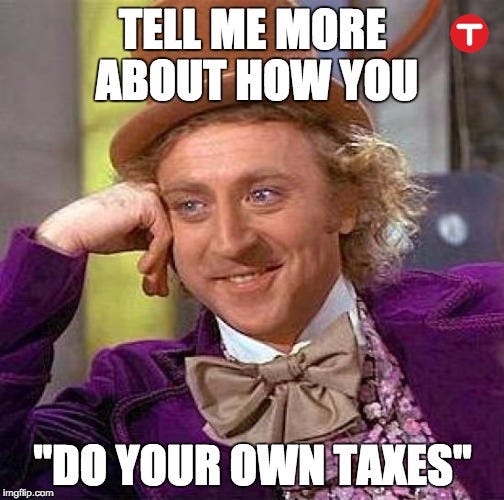Topics:
Ember

“In this world nothing can be said to be certain, except death and taxes.” – Benjamin Franklin, 1789
Here at Anthemis, we’ve made a lot of investments in companies that deal with uncertainty:
- When will we experience the next adverse climate event, and how impactful will it be? (Kettle)
- Will commodity prices rise or fall and how will that affect my business? (Stable)
- Will my customer pay their invoice? (Hokodo)
- Will something go wrong on my construction site? (OnSiteIQ).
But we also like to invest in companies tackling problems that everyone in the world needs to deal with, with absolute certainty. I’m talking about tax though… not death….
Accounting has always struck me as a great use case for automation. Even when I was working as an auditor (don’t judge me, I was young and foolish), I remember someone telling me that they thought 95 percent of our job could be automated using technology. However, the current startup disruptors (Xero, Quickbooks, etc) have been built to help accountants, not disintermediate them.
This means that if you are a small businesses, contractor or freelancer, have two options when it comes to managing their finance and tax obligations:
- Do it themselves. This can be incredibly time consuming and requires an understanding of accounting and tax terminology and rules (which are very complex, trust me).
- Outsource to an accountant. However, this can be very expensive (between £1.3K–£1.5K annually), and means sacrificing full control and understanding of your business.
There must be a better way, right? And that’s why we got excited when we were introduced to Ember, a new accounting platform taking a tax first approach.
Why a tax first approach?
Unlike accounting, where every business has its own chart of account, the tax chart of account is completely standardised. This allows Ember to tax categorise transactions automatically, without the need for complicated accounting reconciliations. By taking this fundamentally different approach, Ember can offer additional benefits such as:
- A real time view of your tax obligation throughout the year
- Tax optimisation by default, as tax rules are built into Ember’s system
- The ability to file and pay tax obligations through the platform.
Ember also offers unlimited tax and accounting advice, with 24/7 in-app support, and uses AI to surface the correct resources for more specific tax questions intelligently. So who needs an accountant?
But why now?
The ability to take this approach has only recently become possible, thanks to a critical shift in the way the UK’s HM Revenue & Customs (HMRC) collects tax. As part of the Making Tax Digital initiative, businesses are now required to keep digital records and submit VAT returns through approved software, which interacts with HMRC systems through the department’s APIs. This will be expanded to all Income Tax by 2023; Ember is already one of the approved software providers.
That’s not the only tailwind the company is experiencing. Last year, unfortunately, many people were made redundant because of COVID-19, a trend that is only likely to continue throughout 2021. Together with more people moving to freelancing/contracting because they have become accustomed to a flexible work environment, this has meant we are seeing record numbers of new companies being created. These digitally savvy micro businesses will be looking for digital accounting and tax solutions.
The Ember team is perfectly positioned to take advantage of these trends. Aaron Shaw (CEO and CTO) has a software engineering and design background, and has experienced this problem first hand when running a previous IT consulting business. Dan Hogan (COO and CFO) is a chartered accountant who is extremely knowledgeable about the tax system, and has scaled a previous accounting software company. We are incredibly excited to start working with Aaron, Dan and the team at Ember. Who knew tax could be so exciting!
